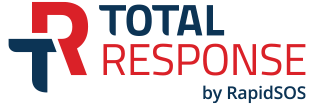With 911 call centers across the country finding it difficult to fill job openings, it is even more important to support existing staff to help reduce the stress and burnout that is often cited as reasons for high turnover. While improving pay and benefits should help in attracting new candidates, helping call takers deal with the inherent stress of their work can go a long way towards creating long-term employees.
Here’s a look at six ways to reduce stress and burnout by supporting your staff’s mental well-being:
1. Create a Sense of Team Pride and Belonging
The sense of belonging is hardwired into us. This is why concepts such as family and team are so strong. Bloomberg Cities, part of Bloomberg Philanthropies, conducted a study with university researchers that looked for ways to reduce burnout and increase retention for 911 call takers.
They discovered a solution that is incredibly simple, and stunningly effective: Ask 911 call takers to share their stories. The study involved 911 call takers from nine cities. Over a six-week period, call takers in the study received an email each week from their supervisor asking them to write a message for people new to the position. The stories were both heroic and practical.
In addition to contributing their own stories, they were asked to read the advice contributed from others. One researcher said: “It was also amazing how open and generous this community is. When we ask people what advice they’d give a rookie, they’d often write things like: ‘we’re here for you,’ ‘you don’t have to suffer alone,’ ‘we know what you’re going through,’ ‘you belong here,’ and ‘we can support you.’ Elevating that generosity and inclusion and building it out is what this intervention was all about.” Four months after the end of the study, the researchers found a significant drop in burnout scores—and more than a 50% drop in resignations.
2. Provide Stability in Scheduling
Stable scheduling can be difficult when a 911 call center is dealing with unfilled job openings. Researchers have found that frequent changes in scheduling and mandatory overtime can wreak havoc on personal lives, as well as disrupt sleep patterns, which adds to stress and burnout.
“Erratic, unpredictable schedules make it hard for frontline workers to manage their personal lives and family responsibilities,” according to an article in the Harvard Business Review. “Research finds a range of negative outcomes occur for workers who have this kind of erratic work schedule — including poorer sleep quality and greater emotional distress.” Workers who experience more predictable scheduling report less stress.
3. Support Employee Personal Needs
911 call center managers can help reduce stress and burn out by recognizing that call takers have lives beyond the PSAP, and that sometimes life beyond work is complicated. This is especially true for those in caretaker roles, whether looking after children, elderly parents, or a spouse with health problems. Add to this their own health or household needs—from going to the dentist, to taking a car in for repairs, to the myriad other chores that don’t fit into off-hours—and there will be times when accommodations in scheduling will be much needed and greatly appreciated.
Of course, this can be difficult if a call center is already dealing with staff shortages, but the ability to support the personal needs of employees shows they are appreciated and valued. A study cited by the Harvard Business Review found that employees whose managers were more accommodating of their family needs had fewer risk factors for cardiovascular disease and slept better.
4. Encourage Employees to Talk About Stress
Any job can be stressful, but 911 call takers are in a special category—right up there with paramedics and police officers. Call center managers and supervisors should create an atmosphere in which the stress of the job is recognized and talking about the pressures is welcomed. It is better to discuss stress than to let it build up internally. Leaders can set an example by talking about their own stress experienced when taking calls. Organizations should also have in place professional resources ready for call takers who need elevated help when dealing with the impact of work, or other factors going on in their life.
5. Offer and Encourage Personal Development
Jobs become more meaningful when employees enjoy a sense of growth and see pathways forward through personal development. This is why Total Response includes a wealth of online training courses to help 911 call takers grow their knowledge and abilities—and achieve new certifications. Personal development can also be fostered through special events, guest speakers, and other programs that offer career enrichment. Fostering a sense of growth provides a safeguard against burn out.
6. Invite Collaboration and Problem Solving
Let your call takers know that you respect and value the deep knowledge and real-world experience they continually develop through their work. Invite collaboration and encourage their help with problem solving.
When working with 911 call centers deploying Total Response, we are always impressed by the suggestions that come from call takers. This is why we provide the flexibility to customize protocols to precisely meet the specific needs of a call center. A call center in Kansas, for example, won’t likely have the need for protocols for a cliff removal, but the state has plenty of very tall silos. A PSAP handling rural calls might put priority on deciding early whether a trauma will require helicopter transportation. Organizations can regularly invite call takers to review protocols, or to offer guidance on other ways to enhance operations. The key is to involve staff and let them know their acquired knowledge is valued.
Our tradition of helping. PowerPhone has a long, proud history of moving the industry forward, powering the evolution of the telecommunicator’s role. From the beginning, we have provided emergency call takers with the skills and confidence they need to take the call. Today, it goes beyond that as we work to help them thrive in their critically important profession.









